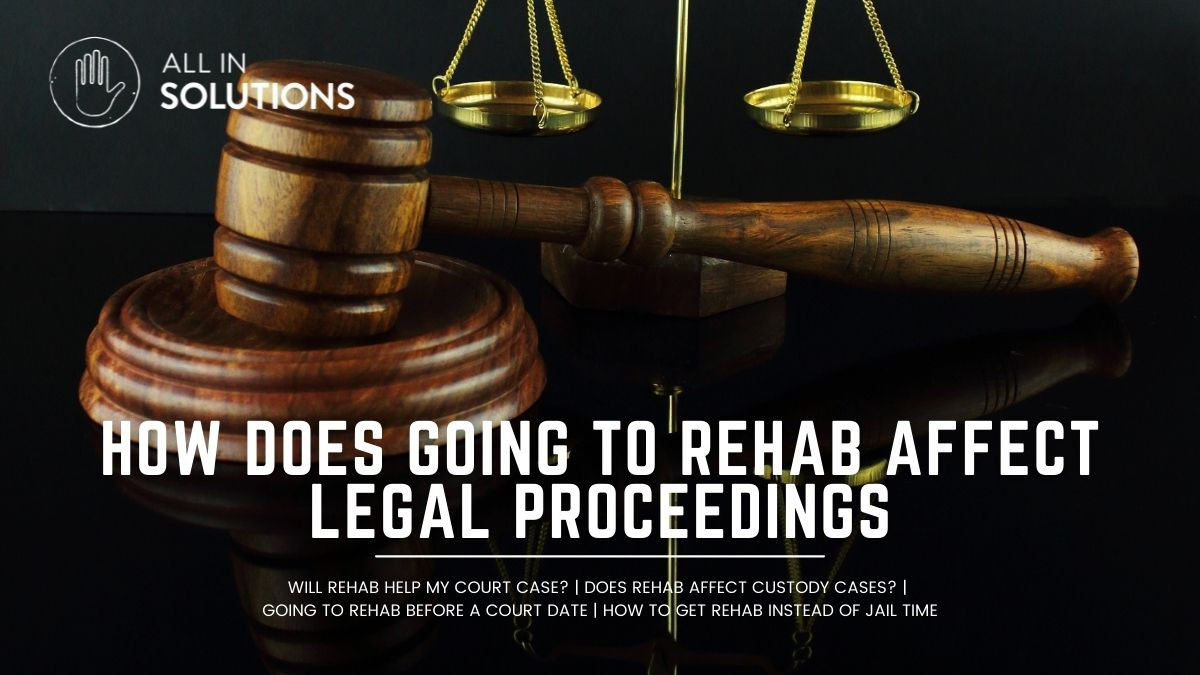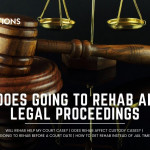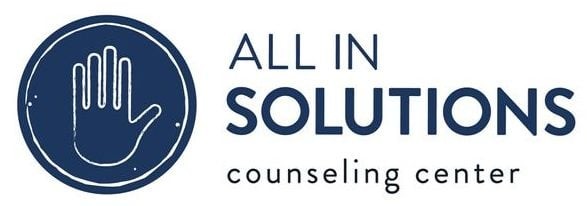All In Solutions Counseling Center Reveals How Treatment Could Help With Court Cases
It is well established that addiction and alcoholism tend to lead to run-ins with the law. Whether it be possession charges, D.U.I. cases, or child custody hearings, many individuals entering addiction treatment programs have ongoing legal issues that they fear will be made worse by checking into rehab. They may worry that by seeking the help they are implicitly admitting that they have a substance use disorder, which could lead the courts to look unfavorably upon them. While every situation is unique, the truth is often far less harsh. Proactively seeking treatment can be a sign of accountability in the eyes of judges and juries. In an article recently published by All In Solutions Counseling Center, addiction experts, and attorneys explain how going to rehab can help with certain legal proceedings.
Will Go to Rehab Help My Criminal Case?
According to the article, what a person may be charged with, what they may be convicted of, and what sentencing may be imposed is often up to the discretion of a judge or jury. While they are guided by sentencing guidelines, how a defendant presents and the impression that they make can make a difference. In some cases, these discretionary sentences can be an opportunity for leniency, which a defendant is more likely to receive if they can demonstrate that they are taking steps to remediate their behavior. A second avenue for forgiveness is via mitigating circumstances. A defendant may be given a lighter sentence if the court finds that their actions were motivated by an emotional disorder, such as an untreated mental illness. Additional mitigating circumstances can include the following:
- Addiction. If drug or alcohol addiction contributed to the commission of a crime, and the defendant attempts to receive help, it could be a mitigating circumstance.
- Difficult personal history. If an individual suffered traumatic or painful circumstances that may have led them to commit a crime, these could be reasons to choose a lighter sentence.
- Remorse. Accepting responsibility and having remorse can result in a more merciful judgment. Getting help with rehab can be a great way to demonstrate remorse and commitment to change.

Can You Go to Rehab Before Your Court Date?
Defendants who are awaiting a court case with no additional restrictions or supervision absolutely can and should get treatment if they are struggling with an addiction. However, those who are on parole, or probation, or have an active warrant may need to take additional steps to ensure they do not inadvertently violate court orders.
Individuals with arrest warrants typically will not be barred from admitting by the treatment programs. In addition, the Health Insurance Portability and Accountability Act (HIPAA) prevents addiction treatment centers from disclosing whether an individual is or is not in their care (except under specific circumstances). That being said, if law enforcement comes to a treatment center to detain a patient, they may advise the patient to turn themself in.
Individuals who have to regularly check in with a parole or probation officer should seek approval before seeking treatment if it will interfere with these check-ins. In many cases, probation officers will grant permission to enter treatment. They may even grant permission to leave the state for treatment if necessary. According to treatment providers, the only requirement in most cases is that the patient signs a release for their parole/probation officer.
How to Find More Information or Seek Help
For more information about how substance use disorder (SUD) treatment can affect parental custody cases, DUI cases, and court-ordered rehab programs, read the full article on the All In Solutions website. Case managers at All In Solutions Counseling Center have years of experience working with legal counsel for clients to ensure they get the help they need while improving the outcomes of their ongoing court cases. Those struggling with addiction who have concerns about how going to treatment will impact a criminal court case, custody hearings, or their chances of going to prison are encouraged to contact a lawyer or an accredited treatment provider.




























